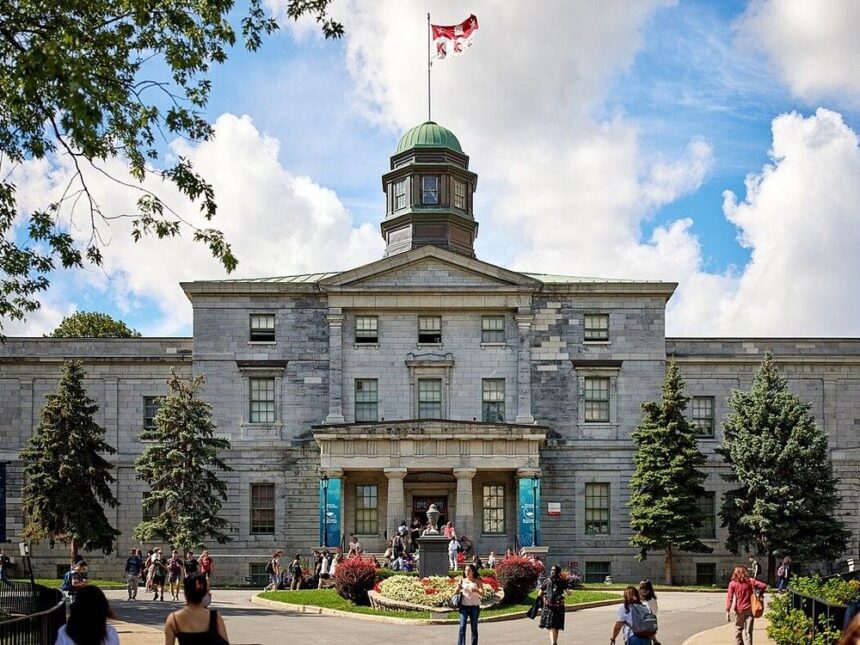I’ve spent the better part of my week speaking with university administrators across Montreal, and there’s a palpable sense of both urgency and opportunity in their voices. With geopolitical tensions reshaping academic landscapes globally, our city’s educational institutions are positioning themselves to become even more significant players on the world stage.
“Montreal stands at a crucial crossroads,” explains Dr. Sophie Marchand, Vice Provost of International Relations at McGill University. “We have this remarkable concentration of world-class universities in a vibrant, safe, bilingual city. The timing couldn’t be better to strengthen our position as a global education hub.”
The push comes as universities across our city are calling on both Ottawa and Quebec to increase investment in programs that attract international talent, particularly as political upheaval in various parts of the world has researchers and students looking for new academic homes.
Concordia University President Graham Carr recently highlighted that “competing jurisdictions are moving aggressively” to attract global talent. During our coffee meeting at a small café in the Plateau last Thursday, he emphasized that Montreal risks falling behind without strategic investment.
The universities’ appeal isn’t merely about growing enrollment numbers. It reflects a deeper understanding of how international talent contributes to our local innovation ecosystem. Montreal has already established itself as an AI research powerhouse, thanks largely to the international researchers and students who’ve made our city their home.
“When we attract brilliant minds from around the world, everyone benefits,” says Marie-Claude Boivin, Director of International Partnerships at Université de Montréal. “These scholars bring fresh perspectives, forge global connections, and often stay to launch companies or contribute to Quebec society.”
The timing of this funding push coincides with increasing restrictions on academic freedom in several countries. The United States has seen politically motivated constraints on certain research areas, while Hong Kong’s academic environment has undergone significant changes. These shifts have created what university administrators describe as a “talent migration opportunity” for Montreal.
Current programs supporting international recruitment do exist, but university leaders argue they’re insufficient for the scale of opportunity. The federal government’s Canada Research Chairs program has been instrumental in attracting established researchers, but institutions are seeking expanded pathways for early-career scientists and broader international student support.
Last weekend, I toured the new science complex at UQAM with its Dean of Research, who pointed out empty lab spaces that could be filled “within months” if proper funding for international recruitment was available.
Quebec’s Ministry of Higher Education has indicated interest in the proposal but emphasizes that any expansion would require careful coordination with immigration policies. “We recognize the tremendous value international talent brings,” a ministry spokesperson told me, “but we must ensure our approach aligns with Quebec’s broader workforce and cultural priorities.”
Walking through campus corridors these days, you can already hear dozens of languages being spoken – a testament to Montreal’s existing appeal. Our universities currently host over 35,000 international students, contributing approximately $1.9 billion annually to the provincial economy, according to figures from the Bureau de coopération interuniversitaire.
But university leaders envision something more ambitious: establishing Montreal as North America’s premier destination for international academic talent seeking a multilingual, culturally rich environment with strong research support.
“We’re not just competing with Toronto or Vancouver,” notes Dr. Marchand. “We’re competing with Boston, London, and Singapore. The investment needed to win that competition is substantial, but the return would be transformative for Montreal’s future.”
As I left my final interview yesterday afternoon, watching students stream across McGill’s campus under the autumn trees, I couldn’t help but reflect on what’s at stake. This isn’t merely about institutional prestige or economic impact – though both matter. It’s about the kind of city Montreal will become in the decades ahead.
Will we seize this moment to further establish ourselves as a global crossroads for brilliant minds? The universities have made their case. Now it’s up to our governments to respond.







